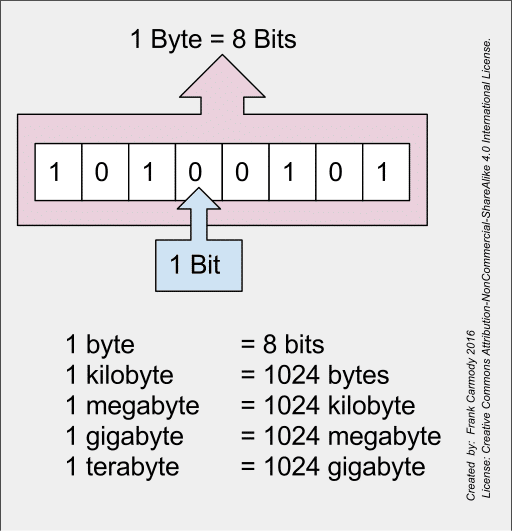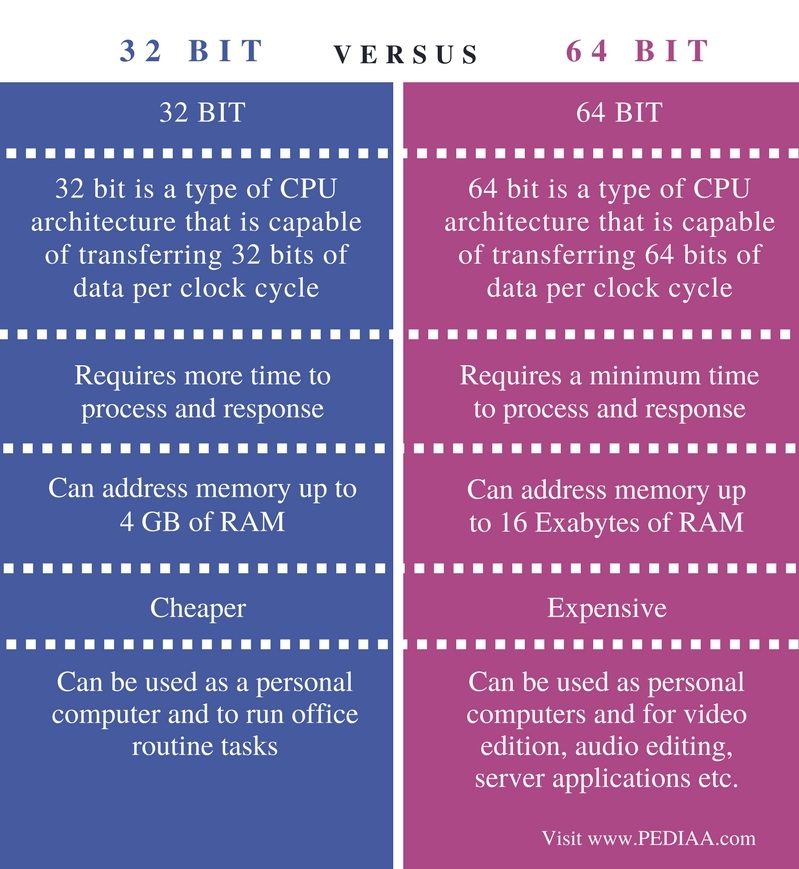Best Of The Best Tips About Is There A 128-bit Operating System

Why Are There No 128bit CPUs?
The Quest for 128-Bit
1. The 64-Bit World We Live In
So, the big question: is there actually a 128-bit operating system floating around out there? It's a question that pops up now and then, especially when we're dealing with increasingly complex computations. Right now, most of our computers are running on 64-bit operating systems. Think of it like this: a 64-bit system can process information in chunks of 64 bits at a time, which is a whole lot faster and more efficient than the older 32-bit systems.
Think back to the days of dial-up internet. You'd start downloading a song and have time to knit a sweater before it finished. The move to 64-bit computing was similar to broadband coming along a significant leap forward. It allowed for handling much larger amounts of memory (RAM) and more intricate calculations. This is crucial for things like video editing, gaming, and running heavy-duty software.
But the computing world never stands still. As our software gets more demanding, and our datasets balloon to ridiculous sizes, the whispers about needing something even bigger and better start to grow louder. That's where the idea of a 128-bit operating system comes in. Imagine the possibilities!
Currently, no commercially available general-purpose operating system uses a 128-bit architecture. The current 64-bit systems are powerful enough to handle pretty much everything we throw at them. But that doesn't mean the idea is dead. Its just waiting.

Megabytes, Gigabytes, And More Computer File Sizes Explained Next7 IT
Why All The Fuss About Bits, Anyway?
2. Decoding the Bit Hype
Okay, so why are bits such a big deal? Simply put, the number of bits determines how much data a processor can handle at once. More bits mean larger memory addresses, which translates to the ability to work with more RAM. More RAM means a smoother, faster experience, especially when running resource-intensive applications.
Think of it like lanes on a highway. A 32-bit system is like having a two-lane highway — enough for most traffic, but prone to bottlenecks during rush hour. A 64-bit system is like upgrading to a six-lane superhighway. A 128-bit system? Well, that would be like having a highway so wide, you could probably land a small aircraft on it. The increased bandwidth allows for significantly greater processing power.
The jump from 32-bit to 64-bit was a game-changer because it allowed computers to access far more RAM. Before 64-bit, 4GB of RAM was pretty much the limit. Now, we can easily use 16GB, 32GB, or even more. A 128-bit architecture would push that limit into the stratosphere, allowing for incredibly complex simulations, massive databases, and AI applications that we can only dream of today.
However, the hardware and software ecosystems need to catch up. Building processors and memory controllers that can efficiently handle 128-bit data is a significant challenge, and software would need to be completely rewritten to take advantage of the new architecture. It's a huge undertaking.

The Hurdles on the Road to 128-Bit
3. Challenges and Considerations
So, if a 128-bit operating system is so amazing, why dont we have it yet? Well, several technical and economic hurdles stand in the way. For starters, designing and manufacturing 128-bit processors is incredibly complex and expensive. The circuitry becomes more intricate, and ensuring data integrity at that scale is a major engineering challenge.
Then there's the software side of things. Existing applications are designed for 32-bit or 64-bit systems. To fully utilize a 128-bit architecture, software would need to be rewritten from the ground up. This requires a massive investment of time and resources from developers.
And lets not forget about compatibility. Imagine buying a brand-new 128-bit computer only to find that none of your existing programs work. That wouldn't be a very pleasant experience, would it? Therefore, any transition to 128-bit computing would need to be carefully planned and executed to minimize disruption.
But perhaps the biggest hurdle is the lack of a clear, pressing need. While some specialized applications could benefit from 128-bit processing, most everyday tasks are handled perfectly well by 64-bit systems. Until there's a widespread demand for the extra processing power, the incentive to develop 128-bit systems remains limited.

Potential Applications
4. Dreaming of Future Tech
Even though 128-bit operating systems aren't mainstream right now, that doesn't mean there aren't potential uses for them down the road. Think about complex scientific simulations, like modeling climate change or simulating the behavior of subatomic particles. These simulations require vast amounts of computing power and memory, and a 128-bit system could offer a significant advantage.
Another area where 128-bit computing could make a big difference is in artificial intelligence. Training complex neural networks requires massive datasets and intricate calculations. A 128-bit architecture could help speed up the training process and allow for the development of more sophisticated AI models.
And let's not forget about cryptography. As our digital lives become increasingly intertwined with the internet, the need for strong encryption becomes more critical. 128-bit systems could enable the use of more complex encryption algorithms, making our data more secure from prying eyes.
Ultimately, the applications for 128-bit computing are limited only by our imagination. As technology continues to evolve, and as our computational needs grow, it's likely that we'll eventually reach a point where 128-bit systems become a necessity. Its like preparing for a future thats almost here, but not quite.

HYUNDAI MOBIS AC232IXAN CAR AUDIO User Manual 1
The Future of Computing
5. Beyond 64-Bit
So, where does all this leave us? While a 128-bit operating system isn't currently available for your desktop or laptop, its not entirely off the table for the future. The industry is continuously exploring new ways to push the boundaries of computing. We may not see a widespread adoption of 128-bit systems in the immediate future, but research and development are ongoing.
In the meantime, there are other ways to improve computing performance. Techniques like parallel processing, cloud computing, and specialized hardware accelerators can help us tackle complex problems without necessarily needing to jump to a 128-bit architecture. These technologies allow us to distribute workloads across multiple processors or computers, effectively increasing our overall processing power.
Also, keep an eye on quantum computing. While still in its early stages, quantum computing has the potential to revolutionize the way we solve certain types of problems. Quantum computers can perform calculations that are simply impossible for classical computers, and they could eventually render the need for 128-bit systems obsolete.
Ultimately, the future of computing is uncertain. But one thing is clear: the quest for greater processing power and efficiency will continue. Whether that leads to 128-bit systems, quantum computers, or something else entirely remains to be seen. Just remember to stay curious and keep exploring. The best is yet to come.

FAQ
6. Your Burning Questions Answered
Still have questions about 128-bit operating systems? Here are a few common queries answered:
7. Is a 128-bit OS faster than a 64-bit OS?
Potentially, yes. A 128-bit OS could handle larger chunks of data at once, leading to faster processing speeds for certain tasks, if the hardware and software were optimized for it. However, without properly designed hardware and applications to take advantage of the wider data paths, the speed benefits wouldn't be realized.
8. Will my current software work on a 128-bit OS?
Almost certainly not without significant modifications or emulation. Most software is designed for 32-bit or 64-bit architectures. A 128-bit OS would likely require completely rewritten applications to fully utilize its capabilities.
9. When will 128-bit operating systems become common?
That's the million-dollar question! It's difficult to say definitively. It depends on advancements in hardware, the development of 128-bit-compatible software, and a clear demand for the increased processing power that 128-bit systems could offer. It's not likely to happen in the very near future, but the landscape of computing is constantly evolving.